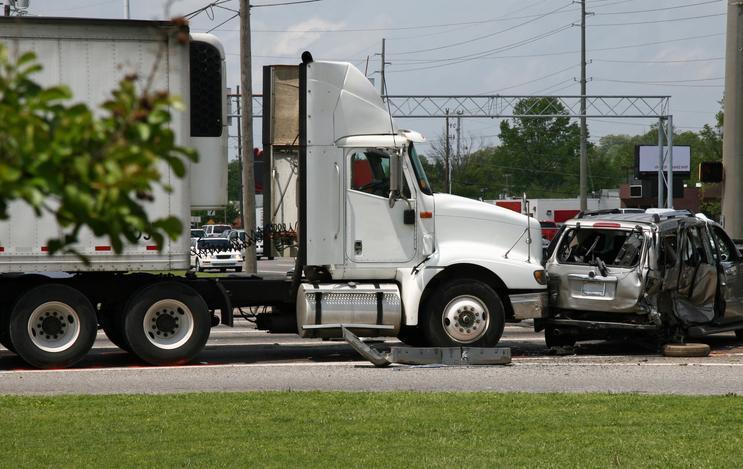When trucks and cars get into collisions, the car drivers and passengers usually suffer the worst injuries. But recovering monetary compensation can be complex, due in part to the multiple parties who could share in responsibility for the accident. Another complicating factor is the vast network of regulations that apply to commercial truck owners, operators and maintenance providers. Showing that these regulations were disregarded or otherwise violated can be a key to success in a damages claim.
At the federal level, the Federal Motor Carrier Safety Administration (FMCSA) enforces rules regarding truck driving equipment, licensing, hours of service and vehicle inspection and maintenance. These rules — known as Federal Motor Carrier Safety Regulations (FMCSRs) — apply to operators of commercial vehicles weighing 10,000 pounds or more in interstate commerce.
Here are four types of FMCSRs that can come into play in trucking accident lawsuits:
- Hours of service — Federal regulations restrict the number of hours that a commercial vehicle operator can drive in a day and between required break periods. Their purpose is to prevent fatigued-driving accidents, which can occur when drivers forgo rest in order to meet deadlines. Current hours of service regulations prohibit operators of property-carrying vehicles from driving more than 11 hours within a 14-hour window. Between each 14-hour window, drivers must rest for a minimum of 10 consecutive hours. In addition, drivers must take a 30-minute break after eight hours of driving time. During their breaks, they may perform other tasks like refueling or doing paperwork.
- Impaired driving — Truck drivers are forbidden from operating commercial vehicles if they have a blood alcohol concentration of .04 percent or higher or are under the influence of any kind of controlled substance. Drivers may be subject to pre-employment testing, random testing throughout employment and testing after an accident.
- Texting and driving — The FMCSA prohibits the use of handheld mobile phones while operating commercial vehicles. This includes using at least one hand to make a phone call, pressing more than a single button on a mobile device or reaching for a mobile phone in a way that takes a driver out of a seated, seat-belted position.
- Truck maintenance — Commercial vehicles must be properly maintained to ensure their safe operation. The rules require trucking companies to keep accurate logs of trucks’ safety inspections and of maintenance and repairs.
The FMCSRs also place restrictions on trucking companies, specifically to prevent them from putting undue pressure on drivers in ways that can encourage unsafe operation.
If you or a loved one has been injured in an accident with a commercial truck, get in touch with the Largey Law Firm in Tavares, Florida. Our legal team knows how to investigate your case to determine whether safety regulations were violated, which can be important to obtaining fair compensation for your injuries. To schedule a free in-person or Skype consultation, contact us online.


